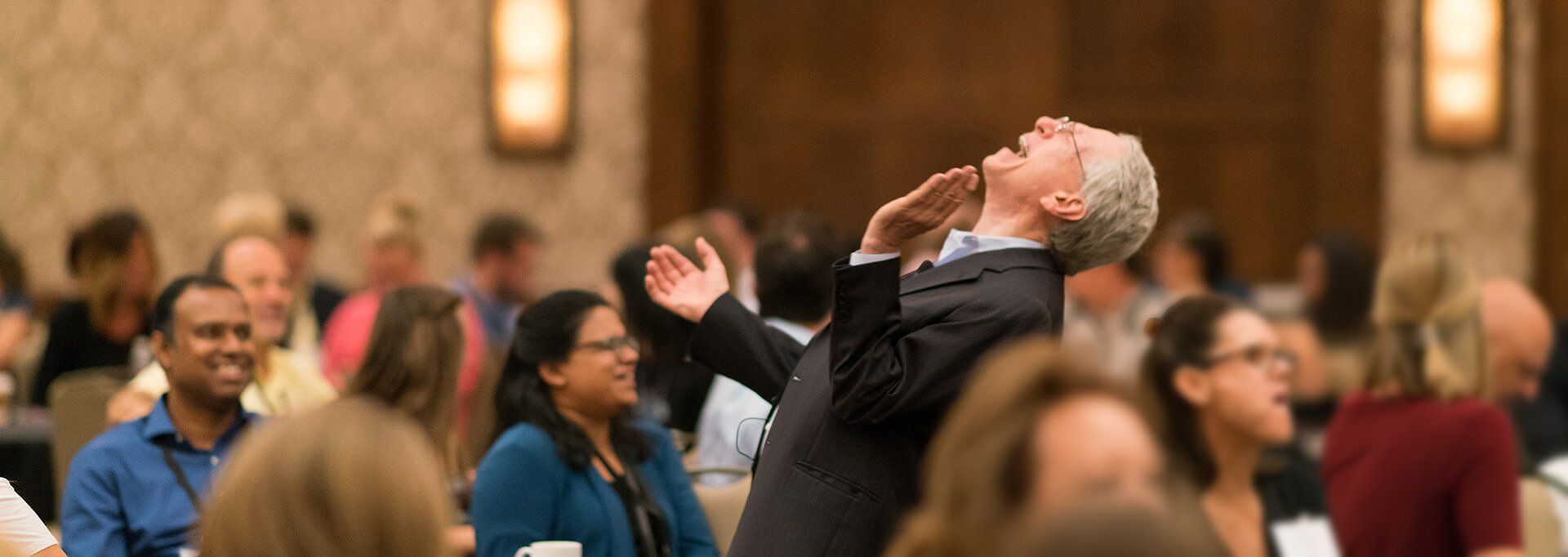When Things Go Wrong, Don’t Get Upset – Smile and Acknowledge the Obvious
Jim Comer
If you speak in public or give presentations at work, I can guarantee one thing: sooner or later you will face the unwanted and unexpected. Power will fail. Air conditioning will stop working in July. Sound systems will sputter. Slides will appear upside down. Cell phones will ring. Someone will doze off and start snoring. When these things happen, don’t look at them as “disasters,” but see them as facts of a speaker’s life. They don’t have to derail your talk if you handle them with humor and simple human grace.
The one thing you must not do is to ignore what’s happening. Failing to deal with what’s going on makes you look unaware, embarrassed, and out of touch. Instead, if you handle the situation quickly and with confidence, you appear likeable, spontaneous, and real. Let me share three situations of the many I have faced:
- The fire alarm goes off. The class groaned, then I ad-libbed: “I know some of you need a break, but you didn’t have to set the men’s room on fire to get one.” The group laughed, we exited the building, then picked up where we left off when we returned. I don’t know if they recalled the key points of my talk, but they may have remembered the one-liner.
- My beautifully designed PowerPoint slides would not respond to my clicker. I spent about thirty seconds trying to get them to work but realized I didn’t know what was wrong. I asked if anyone in the class was a PowerPoint guru. No luck. Then I called the conference coordinator and asked her to send me an IT person fast. Those three actions took about two minutes.
I turned to the class with a big smile and said, “Looks like we may not have my stunning slides, but that’s okay because I know this material like the back of my hand.” If you don’t know your subject like the back of your hand and are counting on slides to get you through it, you shouldn’t be presenting. Fortunately, the IT guy arrived and fixed the problem, but we would have been okay if he’d never shown up.
- The pregnant woman in the second row started having labor pains, I stopped the class instantly and asked what she needed us to do. She said, “I’m calling my husband to take me to the hospital.” She made the call, but the phone went to voicemail, and she looked worried. I suggested that we call 911 and she agreed. EMS arrived in ten minutes and soon had her headed to the maternity ward. My priority was taking care of the soon-to-be mother, while keeping the class calm by letting them know what was going on.
While there is no one size fits all rule for responding to the unexpected, being authentic and keeping your sense of humor are essential. In Coping With the Unexpected from Speaking Tips, we are advised, “How you react to the unexpected is what people will remember. Smile even though you may feel like strangling someone. Keep your cool and sense of humor then make the best of the situation. The good news is that events that seem like a fiasco as they occur will later become a source of amusement. You can even add them to your repertoire of humorous stories for use in future presentations.
During the Academy Awards in 1974, a man streaked across the stage naked just as the emcee, actor David Niven, was about to introduce Elizabeth Taylor. The audience roared with laughter for almost a minute while Niven worked to come up with a comment. He said, “That was bound to happen. Probably the only laugh that man will ever get in life is by stripping off and sharing his shortcomings!” The crowd roared as Niven said what they were thinking. Later that night Niven won the Best Actor award, but what people remember was his brilliant ad-lib that turned an embarrassing moment into a hilarious one.
Learning to acknowledge the obvious can be one of your greatest assets as a speaker. While you may not be on national television when you face the unexpected, how you handle yourself when things seem to go wrong will be remembered by everyone in your audience. Let’s say you are making the key point of your presentation and suddenly a dog comes bounding to the front of the room. You must instantly realize that no one is watching you any longer or hearing what you have to say. Their eyes are on the dog, and you should join them. Immediately stop your presentation and welcome the pooch.
It doesn’t matter what you say as long as you are warm and kind to your four-legged guest. “Look who’s joined us! You see, even dogs want to be a part of this presentation.” Go over and pet the dog and act as if you couldn’t be happier to see him. Then ask someone nearby to help you. “Would you take this dog out and get him some water? He looks thirsty to me.” As the dog is being led gently out of the room, thank him for visiting.
Everyone in the audience will remember how kind you were to the dog and what a good sense of humor you have. They will think you’re a great guy, and dog lovers will be especially overjoyed. If, however, you look irritated or angry and do not treat the dog well, you will lose the audience forever.
According to Sam Harrison, a popular speaker on creativity, “Never be afraid to laugh at yourself. I was once making a major pitch to a group of prestigious decision makers when the laptop containing my slides began to generate a high-pitched whine, then suddenly died. In my frantic attempt to resuscitate the machine, one of my flailing arms knocked over a pitcher of water on the table.
“It was a laugh-or-cry moment, and, against my instincts, I chose to laugh. My audience laughed with me–okay, maybe they laughed at me–but tensions melted, and I was able to move ahead, sans slides.”
The next time you face make a mistake or face an interruption, don’t let it wreck your talk. Think of it as an opportunity to be spontaneous and human. If you acknowledge the obvious with warmth and wit, the audience will say to themselves, “I loved the way he handled it when he tripped over the mic cord and fell on the floor. If something like that happened to me, I hope I could handle it as well!”
Jim Comer works with clients through one-on-one coaching on speechwriting and speech coaching – in person or on Zoom. He also offers presentation workshops to help organizations train groups become more confident and persuasive speakers. For more information on how we can work with you, contact me at www.comercommunications.com.



